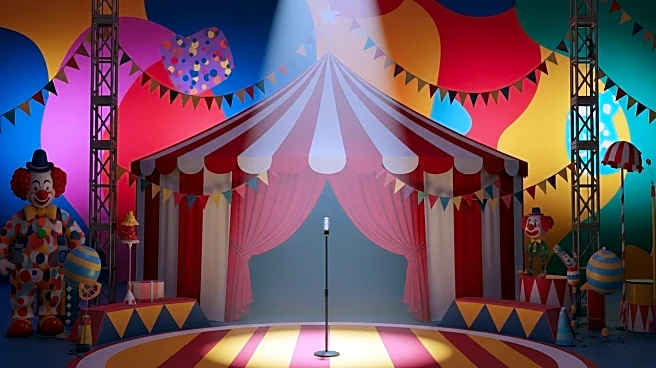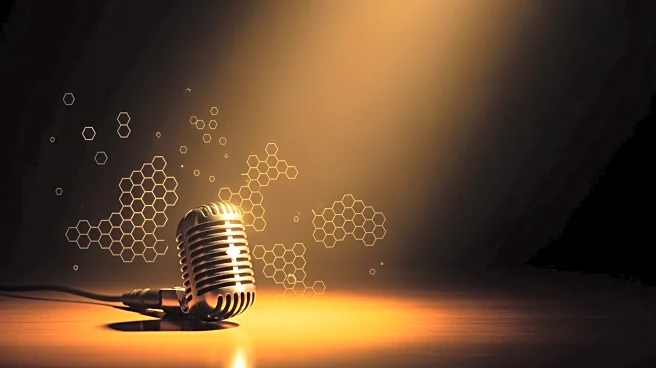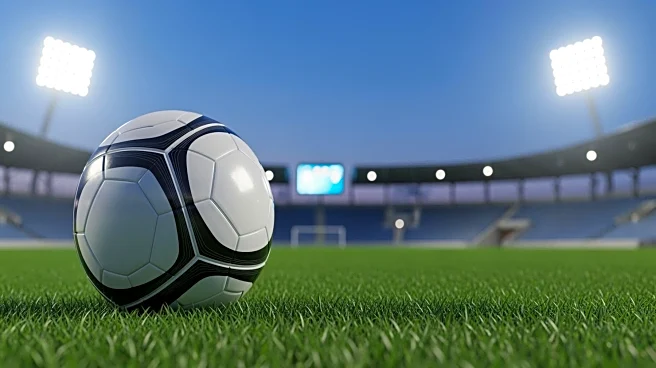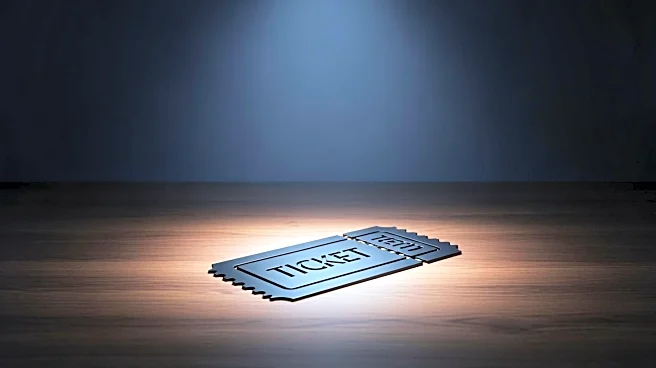What's Happening?
Russian comedians are facing increased censorship and surveillance, leading many to abandon political humor in favor of safer, family-friendly jokes. The crackdown on creative expression has intensified since the war began, with comedians like Denis Chuzhoy choosing to perform outside Russia due to the risks associated with political satire. Inside Russia, jokes about President Putin, politics, and other sensitive topics are strictly off-limits, with comedians facing potential arrest for crossing the line. The environment has become tense, with ultranationalist activists monitoring performances and reporting comedians to authorities. This has led to a significant shift in the comedy scene, with many performers opting for non-political material to avoid legal repercussions.
Why It's Important?
The suppression of political humor in Russia highlights the broader issue of censorship and the erosion of free speech under the current regime. This shift impacts not only the comedians but also the cultural landscape, as humor has historically served as a form of resistance and social commentary. The crackdown reflects the government's tightening grip on dissent and creative expression, affecting the ability of artists to challenge the status quo. For those who have left Russia, the challenge lies in maintaining their craft while adapting to new audiences abroad. The situation underscores the risks faced by individuals who dare to critique the government, illustrating the chilling effect on free expression and the arts.
What's Next?
Comedians who have left Russia continue to perform internationally, adapting their routines to new cultural contexts while maintaining their critical edge. Inside Russia, the comedy scene is likely to remain constrained, with performers navigating the delicate balance between humor and censorship. The ongoing political climate suggests that the risks associated with political satire will persist, potentially leading to further arrests and legal actions against those who defy the restrictions. As the situation evolves, comedians may seek alternative platforms or methods to express their views, while audiences may become increasingly cautious in their reactions to political jokes.
Beyond the Headlines
The crackdown on comedians in Russia raises ethical questions about the role of humor in society and the limits of free speech. It also highlights the cultural impact of censorship, as the arts are often a reflection of societal values and tensions. The situation may lead to long-term shifts in the comedy landscape, with performers exploring new genres or mediums to circumvent restrictions. Additionally, the experiences of exiled comedians could influence global perceptions of Russia's political climate, contributing to international discourse on human rights and freedom of expression.









